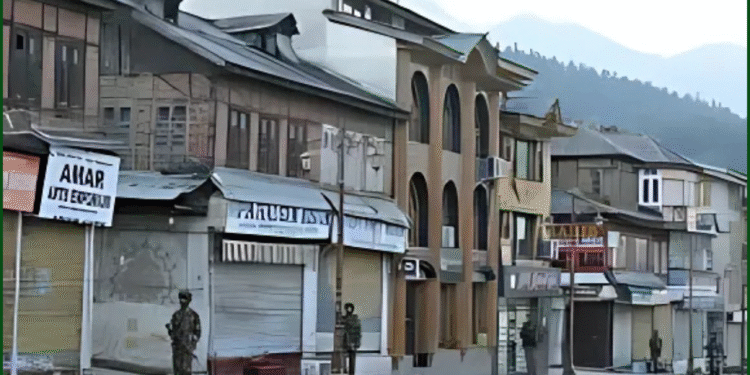A recent militant attack in Pahalgam, a scenic tourist spot in Indian-administered Jammu and Kashmir, has ignited a firestorm of controversy, with questions swirling around the authenticity of India’s official account. A First Information Report (FIR) filed at a local police station has become the centerpiece of a heated debate, as analysts and Pakistani officials point to inconsistencies that suggest the incident may have been a staged operation to serve political ends.
The attack, which occurred on April 22, 2025, in the Baisaran Valley, left 26 people dead, including 25 Indian nationals and one Nepalese citizen, and injured at least 17 others. Indian authorities swiftly attributed the assault to “cross-border terrorists,” pointing fingers at Pakistan. However, the FIR, lodged at a police station six kilometers from the attack site, has raised eyebrows due to its rapid filing and ambiguous language.
According to sources familiar with the document, the FIR was registered at 2:30 p.m., just 10 minutes after the attack reportedly ended at 2:20 p.m. The assault, which unfolded between 1:50 p.m. and 2:20 p.m., was described in the FIR as “indiscriminate firing” by “unknown cross-border terrorists” acting “at the behest of foreign handlers.” Critics argue that the speed of the filing—given the distance to the police station and the chaotic aftermath of the attack—suggests prior knowledge or a pre-prepared narrative. The use of specific phrases like “foreign handlers” has also fueled speculation that the document was crafted to fit a predetermined storyline.
Adding to the skepticism, the FIR’s description of the attack as “indiscriminate firing” contrasts sharply with Indian media and government claims of a targeted killing. This discrepancy has led some to question whether the incident was orchestrated to bolster domestic political support for India’s ruling party, particularly ahead of regional elections. Pakistani officials have seized on these inconsistencies, accusing New Delhi of staging a “false flag” operation to malign Pakistan and justify aggressive diplomatic and economic measures.
In a unanimous resolution passed on April 25, 2025, Pakistan’s Senate condemned India’s allegations as “baseless and politically motivated.” The resolution, proposed by Deputy Prime Minister Ishaq Dar, rejected any link between Pakistan and the Pahalgam attack, emphasizing the country’s firm stance against terrorism. It also criticized India’s decision to suspend the Indus Waters Treaty, a 1960 agreement governing the sharing of river waters between the two nations, calling it a “blatant violation” and an “act of war.” The Senate vowed that Pakistan would respond decisively to any Indian provocations, including threats to its water security or territorial sovereignty.
The suspension of the Indus Waters Treaty, announced by India on April 23, 2025, has escalated tensions to a boiling point. The treaty, brokered by the World Bank, allocates the waters of the Indus River system, critical for Pakistan’s agriculture and economy. Pakistan’s leadership has warned that any attempt to disrupt water flows would be met with severe consequences, potentially destabilizing the region.
Security analysts have noted that the attack’s location—400 kilometers from the Line of Control (LoC) and just one kilometer from an Indian military base—raises logistical questions. The heavily militarized region, with over a million security personnel deployed, is tightly controlled, making undetected infiltration by foreign militants unlikely. The lack of a timely response to distress calls during the attack, despite the proximity of military forces, has further fueled suspicions of a staged event.
The controversy has drawn international attention, with calls for an impartial investigation into the incident. While India has briefed diplomats from several countries, including the United States, United Kingdom, and France, on its version of events, Pakistan has urged the global community to hold India accountable for what it describes as a pattern of fabricating crises to deflect from domestic challenges.
As both nations trade accusations, the Pahalgam attack threatens to unravel decades of fragile coexistence. The FIR, once a routine bureaucratic document, now stands as a flashpoint in a high-stakes geopolitical drama, with the truth hanging in the balance.

















































